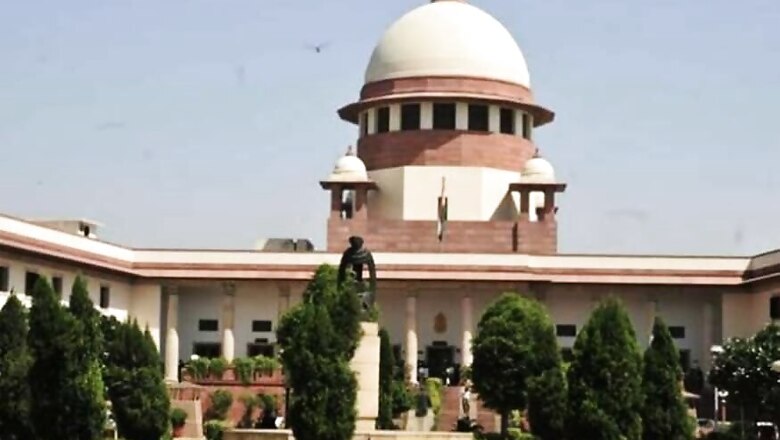
views
On May 11, a Bench of Supreme Court headed by Justice NV Ramana, in a significant judgment, constituted a Special Committee to look into the restrictions imposed on 4G internet in the Union Territory of Jammu and Kashmir. The judgment is significant from the standpoint of deference the courts should observe in those areas of decision-making where specialised and technical judgment of executive is involved. A recollection of the journey that culminated in the judgment demonstrates how the court has rightly continued to respect that principle.
After the Supreme Court laid out the principles that should be followed in imposing internet restrictions in Anuradha Bhasin’s Case, the government of Jammu and Kashmir began to relax the restrictions in a phased manner. First it resorted to whitelisting and banning of social media websites. Gradually, it lifted the ban on specific websites and started providing internet at a reduced speed. However, still aggrieved by the slow speed that affected some day-to-day activities, the matter found its way back to the court where this time it was called upon to review the restrictions on internet speed placed by the government.
Taking note of the submissions made by both sides, the court noted that in reviewing the restrictions, a balance ought to be maintained between competing considerations of national security and fundamental rights. In performing this analysis, four factors weighed heavily with the court.
First, internet restrictions had been gradually lifted in the region over the past few months. Second, there had been a proliferation in the incidents of terrorism and the resultant loss of military and civilian lives since August 5 last year. Third, a rather more alarming aspect was the evidence of the insidious intent of our territorial neighbors in waging an informational warfare in Jammu and Kashmir. Lastly, the intrinsic nature of modern day terrorism and the means it has deployed in fighting the ideological warfare.
On a cumulative assessment of these factors, that are overwhelming in quality, the curt found interests articulated by the state are sufficiently compelling and cannot be ignored while reviewing the restrictions.
Based on these considerations that not only affect the region but the entire country, the court modified the composition of the Review Committee entrusted with the responsibility of reviewing internet restrictions under the Telegraph Rules. The court noted that a high-powered committee would be appropriate to address the situation prevalent in the Union Territory in accordance with the law laid down by the court. Accordingly, it observed that:
“…It may be noted that in the earlier judgment of Anuradha Bhasin (supra) this Court had directed that, under the usual course, every order passed under Rule 2(2) of the Telecom Suspension Rules restricting the internet is to be placed before a Review Committee which provides for adequate procedural and substantive safeguards to ensure that the imposed restrictions are narrowly tailored. However, we are of the view that since the issues involved affect the State, and the nation, the Review Committee which consists of only State level officers, may not be in a position to satisfactorily address all the issues raised. We, therefore, find it appropriate to constitute a Special Committee comprising of the following Secretaries at national, as well as State, level to look into the prevailing circumstances and immediately determine the necessity of the continuation of the restrictions in the Union Territory of Jammu and Kashmir…”
However, some learned members from the academia and legal fraternity like Salman Kushid and Gautam Bhatia have delivered a broadside on the approach taken by the court in adjudicating the restrictions. Their primary grievance is that the order delegates judicial function to an executive committee. However, they fail to identify the context and safeguards with which the decision-making process was delegated. The delegation of the power was not absolute, rather was qualified with sufficient caveats and safeguards.
Let us understand the safeguards that have been read into by the Supreme Court order. First substantive shield is the proportionality principle. This principle has three prongs:
1.) the restriction should be limited in its territorial application.
2.) the restriction should be limited to only when required. 3.) that the restriction should be minimum commensurate with the necessity. This simply means that the government is required to have inputs as to prevalence of fake news and other communications within a particular area. Based on the prevalence of the material, the order should be passed for individual districts, where the Internet abuse is leading to violence.
Such orders passed are to be reviewed by two committees, which can further be useful in calibrating the restriction and making it proportional. The review mechanism procedure is not a formal compliance. The committees are expected to pass orders having regards to the standards set above, justifying or rejecting the restrictions passed. The spirit of the judgment is that there is multiple hierarchy of application of mind before the restrictions are applied.
The delegation of the function is on a narrow sphere, which is adequately tempered by the numerous safeguards read into the same. The threat to national security is not a mere fancy term utilized by the courts. Surely, I hope that academicians, and the legal fraternity who sit in their ivory towers would have due regard to the ground realities faced by our country every day. As of today, grave threat from our neighbors is evident and our soldiers are sacrificed every day. The novel thought integrated by the Court to allow the executive to take the responsibility shall usher a rights-oriented culture in administration while at the same time prevent terrorism and violence. In my view time will stand as an evidence of merits in the order.
(The writer is a senior advocate in the Supreme Court. Views are personal.)
















Comments
0 comment